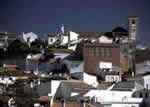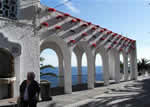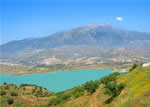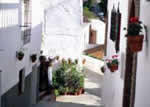There is always tension when cultures meet and none more so when you are a sick Expat, have poor Spanish and you have been admitted to a Spanish state hospital. Having spent over a week recovering from major surgery in Colemar Hospital I have made some observations to help the hospitalised Expat cope with the experience.
Medical care in Spain is among the best in Europe, technical expertise is high and world class in some areas like cancer treatment. Wards are cleaned regularly and hygiene is superb. Food is nutritious and has a Spanish emphasis.
Apart from the obvious language difficulties in a Spanish hospital (most hospitals now have part time translators to help you if your Spanish is weak) there are many other significant differences to contend with in attitude, expectations and family involvement with the patient. Not to mention living close to other patients that have an entourage of family supporters coming and going at all times that tend to set up ‘camp’ in your two person room.
The partner or family carer of a patient is expected to work hands on along side nurses to tend the patient, change the bed linen daily, help wash and dress the patient, take them to the toilet if necessary and sleep next to them in a very uncomfortable hospital chair.
If you or you patient do not meet these expectations then you will be an exception to the rule.
This culture of care is managed by delightful nurses that are very helpful and professional. Some speak English and their smiles are plentiful. Nurses undergo a four year degree programme to fully qualify.
The Spanish way of health support for patients by their families has to be commended. I know of no other culture so dedicated to looking after a loved one. Unfortunately the Expat will find this approach intrusive, noisy and out of their experience of patient care in their home country where hospitals regulate the movement of visitors, visiting times and impose rules on mobile use and noise generally. You may be well out of your comfort zone.
When the extended family of the Spanish patient in the next bed take over the room they tend to use the opportunity to socialise, with grannies, mothers, uncles and aunties chatting forcefully.The younger members of the family tend to sit and talk to each other or answer their phones and text incessantly or watch TV. All this tends to happen three times a day; lunch time, early evening when the younger children visit and late evening for the adults.
Most of the double rooms stay with their doors permanently open day and night so the corridor is noisy with the coming and goings from other rooms. Once this is all over at about 10.30 life settles down, the noise subsides and the sleep interruptions set in. Spanish patients and partners get ready for bed after a busy day. The light is often left on in their half of the room the door is often left open to the corridor and sometimes the toilets are used in the night with the door open. You and your Spanish patient and their partner settle down for a peaceful night’s sleep to let the healing process take its course.
Most middle aged people snore and the two lovely people only two metres away from you are no exception. You might be a snorer yourself so you too can contribute to the cacophony of noise.
So here are a few tips:
Travel light; you need few clothes; you can get away with going home in the clothes you came to hospital in because you will have clean pyjamas, a towel and bed linen chanced daily.
Rooms are warm and have air con; you will not need your winter warmers.
Which bed? Ask for the bed nearest the window if you can or ask to change beds if the ‘window’ bed becomes vacant; the other bed is in the darker end of the room and is next to the bathroom and near the open door to the corridor. It has less fresh air from open windows. Also, every visitor going to the ‘window’ bed will have to pass by your bed first. Anyway, it is nicer to have some sort of outside view.
Footwear; flip flops or sandals are best.
Odd socks; you will be expected to wear anti DVT long socks most of the time, these are more amusing than anything else.
Bed linen; linen will be put out for you so make the bed yourself or do it with the help of your visitors unless you cannot move from the bed because you are hooked up to drips and drains etc. in which case an orderly will miraculously make the bed with you in it.
Always; take a sleep blindfold AND earplugs! (similar to those you get on a plane)
Entertainment; take a tablet or kindle or I Pad or smart phone loaded with films or stuff to read or do;the TV in your room is small and is Spanish. Maybe even fall back on a traditional paper book!
Noisy interruptions; take earphones or you will not hear anything if the room is full of people talking and the TV is on.
There is no WiFi; consider buying a data sim card for the duration if you want to email etc. (about 10€ for a month for 1 GB)
Keep all your personal stuff in your locker by the bed and try to keep the table top clear for your food tray; note. the vertical table pulls up and out and the height and angle can be adjusted.
Have lots of bottles of water in your locker and any other treats you are allowed.
Washing and showering; Take your wash bag but you will not need a towel.
Hygiene; always use the disinfectant hand wash on the wall regularly.
If you do not speak good Spanish always take a native speaker on entry to hospital or ask for a translator (they a voluntary and only available until two pm. at their special desk near the reception area, if there are none there; wait)
Food is adequate, healthy and nutritious but may not be to your liking. Get your visitors to bring you in some healthy supplementary items you like (unless you are on a controlled diet or drip)
Get well soon!
Martin Robinson



















